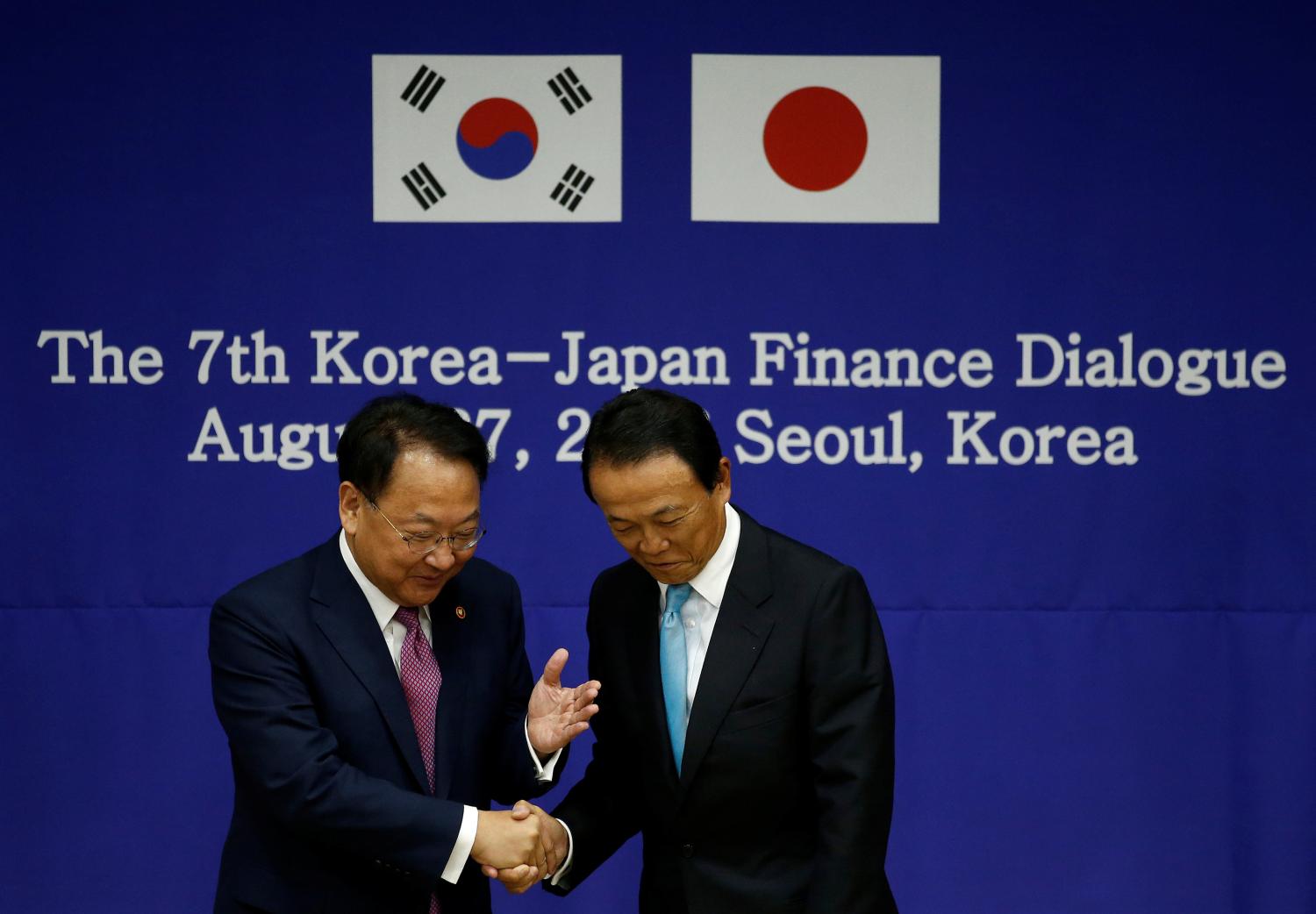As part of its efforts to become a “Global Korea,” the Republic of Korea is undertaking efforts to contribute responsibly to the international community. The Korean government has actively participated in the G-20 summits – working collectively with other national governments to find solutions to the global financial crisis. Participants in the September 2009 Pittsburgh Summit unanimously decided upon Korea as the host for the November 2010 G-20 Summit.
What most people do not know is that Korea has become a significant international provider of development assistance. In November 2009, for example, Korea became the 24th member of the OECD’s Development Assistance Committee (DAC), which is the leading source of best practices and review of priority development cooperation issues, and which mobilizes the majority of the world’s official development assistance (ODA), especially for poverty reduction. Korea will also participate in the September 2010 summit on the United Nation’s Millennium Development Goals. Finally, in 2011, Korea will host the Fourth High Level Forum on Aid Effectiveness (HLF-4), an international summit in which government and civic leaders from both developed and developing countries will assess ongoing global efforts to make aid more effective in reducing poverty and promoting economic growth. Through these participatory and leadership endeavors, Korea seeks to play a larger role in resolving global issues and secure its standing as a truly Global Korea in the international community.
Korea
’s Development Cooperation Policy
Between 1945 and the 1990s, Korea transformed itself from an aid-recipient country to a donor, emerging from conditions similar to those faced by poor countries today and achieving economic growth and poverty elimination in a short period time; this successful development has been viewed as a model for poverty reduction. Understanding that sharing its successful development experience with developing countries is the most effective means of assistance, to date Korea has concentrated its international aid efforts on human resources development through technical cooperation and transfer of economic development experience. For example, Korea contributes to human resources development in developing countries by building vocational training centers and providing systemic training programs, invites every year about 4,000 people of developing countries to be trained in Korea, and sends experts and volunteers into the field to transfer the development experience. Last year, the Korean government and the United Nations Development Program (UNDP) signed an agreement to establish a Policy Center on Global Development Partnerships in Seoul, which will focus on transferring Korea’s development experience and knowledge to developing countries. Korea’s ODA has been increasing steadily and in 2008 it amounted to US$802 million, or 0.09 percent of gross national income. Korea plans to increase its ODA to 0.25 percent of its GNI by 2015 – the Millennium Development Goals’ target year.
Along with these quantitative enhancements, Korea is doubling its efforts to improve its aid quality. “Tied aid,” in which aid must be used to procure goods and/or services from the donating country, has long been considered indicative of coherence and effectiveness of aid policies, though this view is changing and “untied aid” is becoming more important. Historically, Korea’s ODA has been heavily tied; in 2007, only a quarter of Korean aid was untied, well below the average for existing DAC members. Korea has now established a road map to reduce its tied aid. Overall, Korea plans to untie 75 percent of its ODA by 2015.
In 2008, Korea spent 56 percent of its gross bilateral aid, which is allocable by region, in Asia, and nearly 70 percent of this funding was focused on East Asia. This indicates a strong local focus for Korea’s bilateral ODA and reflects Korea’s view that its own development experience is most relevant to other East Asian countries. But Korea has recently increased its ODA to Africa, doubling its support to the region through “Korea’s Initiative for Africa’s Development.” In an era when the international division of labor and increased coordination are paramount, maintaining this geographic focus is necessary. Although aid to other regions is very important, as Korea scales up its giving it should stay focused on East Asia, an area in which it has a comparative advantage. It is expected that OECD/DAC membership will help fulfill the policy commitment of expanding Korea’s contribution to the international community and will help systematically improve Korea’s aid system.
However, intra-governmental coordination is a challenge, and the Korean development community remains fragmented. For example, the Ministry of Foreign Affairs and Trade (MOFAT) is in charge of policy-making for grant aid, and the Ministry of Strategy and Finance (MOSF) is in charge of policy-making for concessional loans. In addition to these two core institutions, approximately 30 institutions participate in the execution of ODA programs. In its 2008 Special Review of Korea, the DAC recommended that the Korean government establish “a single entity with sole authority over development cooperation objectives, policy, and strategy.”[1] For example, at present MOFAT and MOSF each produces a separate Country Assistance Strategy (CAS) for a given country; obviously it would be more efficient for the Korean government to develop a single unified CAS for a given country. As the OECD Special Review notes, the lack of a unified strategy “undermines the coherence, efficiency and potential impact of development activities.”
To complement its improved plans for aid as described above, Korea must improve its aid architecture, and enhance the efficiency of implementing development cooperation. In this regard, it is encouraging that recently the Korean government further intensified the roles and functions for substantial coordination of the Committee for International Development Cooperation (CIDC), which is chaired by the prime minister. But considering that past efforts to address the problem through the CIDC have not been very successful, the strong support of high level leadership is needed to establish a cohesive and integrated aid strategy which encompasses the policies and programs of relevant development cooperation authorities.
Development Agenda for the G-20
The G-20 summit has become a premier forum for international economic cooperation, and is expected to become an annual, institutionalized gathering. Korea’s chairmanship of the G-20 in 2010 represents an opportunity to bring development issues to the forefront of global economic policy discussions, and Korea can serve as a bridge between the developing and developed worlds through its own experience and expertise. Korea’s leadership of the G-20 summit and participation in the UN Millennium Development Goals in September 2010 offer opportunities to stimulate a recommitment to the MDGs as the global agreed framework for development to 2015.
The G-20 cannot take on the full scope of development issues; instead it should focus on development efforts where collective global action is required and where global financing facilities are felt to be valuable. A partial list of the most important areas is: food security; climate change; and universal education. If Korea is able to get the G-20 to focus on at least one of those areas, it would be one of the leading countries of the world that bridges the divide between developed and developing countries.
The Fourth High-Level Forum on Aid Effectiveness and Global Development Partnership
The Paris Declaration on Aid Effectiveness, signed at the Second High-Level Forum on Aid Effectiveness (HLF-2) in Paris in 2005 by over 100 ministers, heads of national agencies, and other senior officials from around the world, was conceived to be an international agreement to reform how aid is delivered and managed. It set targets for 12 development indicators to be achieved by 2010, and a monitoring survey is now in place to review progress against the targets every two years.[2] The Fourth High Level Forum on Aid Effectiveness (HLF-4) will be held in Seoul in October 2011, the year after the Paris Declaration’s deadline for achievement of targets, and shortly after the results of the next monitoring survey will be released. The expectation is that the international community will fall short of its targets in a number of areas. It is also likely that progress toward the Millennium Development Goals will be seriously off-track when ministers gather in Seoul. Therefore, the Seoul HLF-4 will be held at a critical time, and Korea can play a central role in expanding international development aid and improving its effectiveness.
Since the Paris Declaration on Aid Effectiveness was signed, global philanthropies, international NGOs, and private corporations have become major private aid players. Emerging or re-emerging donors, especially China and India, have become significant sources of finance for poor countries. Many new or emerging donors look to their own development experience for guidance in their cooperation with other countries, and they may view the established guidelines for conventional assistance as reference materials rather than rules.
As implied by the descriptions above of some of the efforts of the OECD and G20 to improve aid practices and effectiveness, high-level attention is being given to international development assistance. But while we are trying to build stronger relations between donor groups, emerging donors are still generally underrepresented in the global aid decision-making architecture. While there is some general agreement about the need for collaboration with emerging donors, there is virtually no action to engage them. In order to do so, a more inclusive process for setting aid standards must be developed. The developed world should embrace the different viewpoints that the emerging donors represent, in terms of their experiences, and engage them in agenda-setting process.
This evolution in the international aid-giving community indicates that there is a need for new mechanisms that can enable donors to share and coordinate information about aid. Thus, emerging donors will have a chance to increase their global engagement to broad positive effect.
It is clear, therefore, that the Seoul HLF-4 should address changes in the global context for aid. As host of the forum, Korea should make efforts to strengthen and broaden the global development partnership, and also to create common guidelines that all stakeholders – including emerging donors and private aid players – can support. Korea has experience both as an emerging donor and now a DAC member; this experience could help build a bridge the two communities. If a “Seoul Declaration” on aid effectiveness is announced at HLF-4, it would greatly contribute to global development, and it reinforce Korea’s national renaissance and further enhance its image in the world.
Korea’s chairmanship of the G-20 in 2010, the UN Millennium Development Goals Summit in 2010, and the Seoul HLF-4 in 2011 create a good opportunity for Korea to play a larger role in global development. In order to become a truly Global Korea and to live up its ever-increasing expectations as a respected member of the international community, Korea must seize this opportunity and make a lasting contribution to global development.
[1] OECD Development Co-operation Directorate, “Development Co-operation of the Republic of Korea,” August 8, 2008, http://www.oecd.org/dataoecd/53/50/42347329.pdf; accessed January 21, 2010.
[2] See “Paris Declaration on Aid Effectiveness: Ownership, Harmonization, Alignment, Results and Mutual Accountability,” at http://www.adb.org/media/articles/2005/7033_international_community_aid/paris_declaration.pdf.
The Brookings Institution is committed to quality, independence, and impact.
We are supported by a diverse array of funders. In line with our values and policies, each Brookings publication represents the sole views of its author(s).




Commentary
Op-edKorea’s Role in Global Development
February 9, 2010